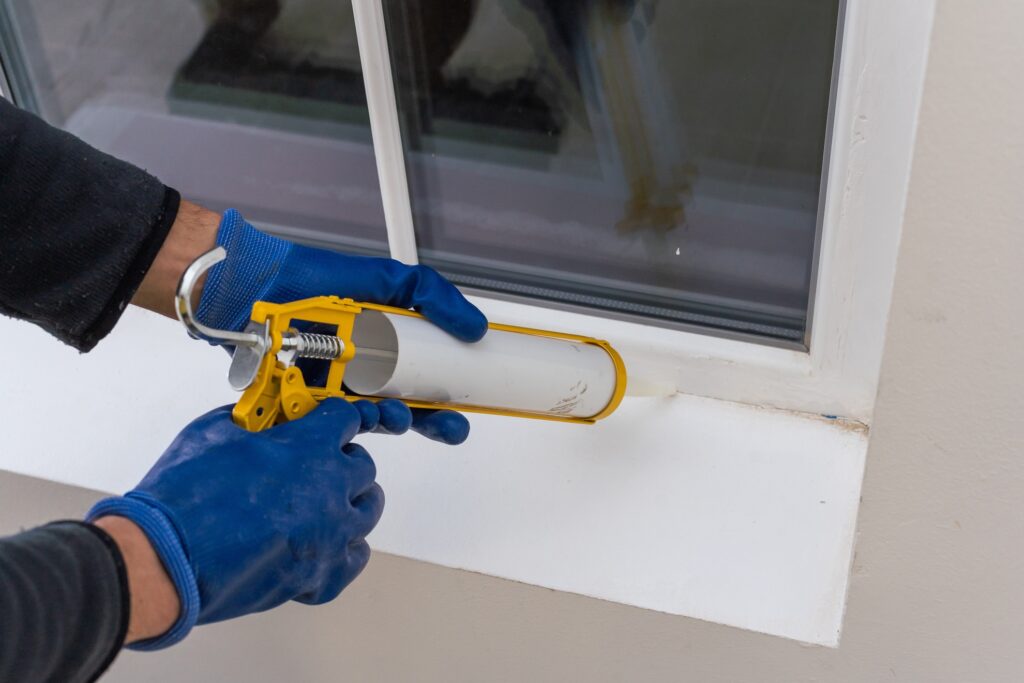
Air sealing is often overlooked, but it’s one of the most important things you can do to improve your home’s energy efficiency. Just how much of a difference does air sealing make? When combined with insulation, air sealing your home can reduce your heating and cooling costs by 15 percent!
The Sponsors of Mass Save® offer generous rebates to insulate and air seal your home. Neeeco can help you take advantage of no-cost air sealing and 75-100% off insulation with Mass Save incentives! Schedule your no-cost Home Energy Assessment today to get started.
What Is Air Sealing?
Every home needs controlled airflow (aka ventilation), but most houses have uncontrolled airflow due to air leaks. Not only does this result in significant energy waste, but it can also make your home uncomfortable and allow moisture in, leading to mold growth.
Air leaks are gaps, cracks, and openings that allow air to flow freely into and out of your home. They can be located almost anywhere but are most common in areas where different materials meet, like around basement rim joists. Other common areas include where electrical outlets, light fixtures, plumbing fixtures, or ducts penetrate the wall, ceiling, or floor.
Air sealing is the process of finding and closing up the air leaks in your home. It reduces uncontrolled airflow to prevent outdoor air, moisture, and pollutants from finding their way into your home.
Why You Should Air Seal Your House
Air sealing a house doesn’t just work to reduce energy waste. It has a long list of benefits that you’ll feel throughout your entire home.
- Energy savings – Air sealing minimizes energy loss, improving your home’s energy efficiency and saving you money on your heating and cooling bills.
- Indoor air quality – Air sealing keeps moisture, pollen, and other outdoor air pollutants from entering your home, reducing the risk of mold growth and leading to better indoor air quality.
- Comfort – Air sealing will make your home less drafty and help it maintain a more comfortable, even temperature year-round.
- Pest control – Air leaks are easy entry points for pests! Closing them helps prevent pest intrusion.
- Incentives – Most Massachusetts residents can air seal their homes for no cost with Mass Save incentives! Schedule a no-cost Home Energy Assessment to see if you qualify.*
How to Tell if Your House Needs Air Sealing
Some of the most common signs your house needs to be air sealed include:
- Drafts
- Inconsistent temperatures
- Excessive dust and pollen
- Moisture
DIY Air Leakage Testing
If you think you need air sealing in your attic or another part of your home, you can perform a DIY air leakage test with a stick of incense. To perform a DIY air leakage test, turn off all combustion appliances and exhaust fans and close all doors and windows. Then, light a stick of incense and hold it near common air leakage sites, like windows and attic hatches. If the smoke wavers, there is likely a leak.
Professional Home Energy Assessment
A DIY air leakage test is a good first step, but it’s not the most accurate or effective way to check for air leaks. The best way to find out if and where your house needs to be air sealed is with a no-cost Mass Save Home Energy Assessment. Neeeco offers Home Energy Assessments with professional technicians who will inspect your home for signs of air leakage and help you find the most effective ways to improve efficiency. We’ll also explain what Mass Save weatherization incentives you qualify for—you could save 75-100% on insulation and air sealing!*
*Some restrictions apply. Offers are subject to change or cancellation. Visit MassSave.com/HEA for full details.
